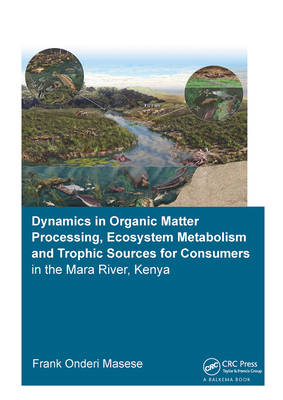
- Retrait gratuit dans votre magasin Club
- 7.000.000 titres dans notre catalogue
- Payer en toute sécurité
- Toujours un magasin près de chez vous
- Retrait gratuit dans votre magasin Club
- 7.000.000 titres dans notre catalogue
- Payer en toute sécurité
- Toujours un magasin près de chez vous
Dynamics in Organic Matter Processing, Ecosystem Metabolism and Tropic Sources for Consumers in the Mara River, Kenya
Frank Onderi Masese
93,45 €
+ 186 points
Format
Description
To properly conserve, restore and manage riverine ecosystems and the services they provide, it is pertinent to understand their functional dynamics. Growing human populations and high dependency on natural resources in developing countries have exerted pressure on land and water resources. However, there is a major knowledge gap concerning the influence of human activities on the functioning of tropical rivers in terms of organic matter processing and energy sources supporting riverine consumers.
This thesis explores the functioning of tropical upland streams and savanna rivers by assessing the spatial and temporal dynamics in organic processing under different land-use and discharge conditions and the resultant influence on energy sources for riverine consumers. This thesis contributes to the theories of river functioning and has improved understanding of the functioning of African tropical streams by identifying a diverse macroinvertebrate shredder guild and determining its role in organic matter processing. This thesis also shows that large mammalian herbivores enhance terrestrial-aquatic food web linkages in African savanna rivers via the transfer of organic matter. The findings of this researcht are useful for defining future research needs and actions for sustainable management of agriculturally influenced streams and savanna rivers in landscapes witnessing declining wildlife populations and changing land uses.Spécifications
Parties prenantes
- Auteur(s) :
- Editeur:
Contenu
- Nombre de pages :
- 212
- Langue:
- Anglais
- Collection :
Caractéristiques
- EAN:
- 9781138373310
- Date de parution :
- 27-09-18
- Format:
- Livre relié
- Format numérique:
- Genaaid
- Dimensions :
- 175 mm x 246 mm
- Poids :
- 452 g







